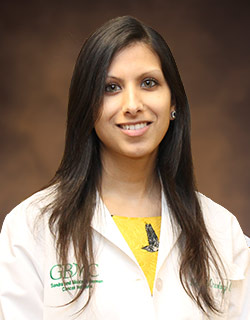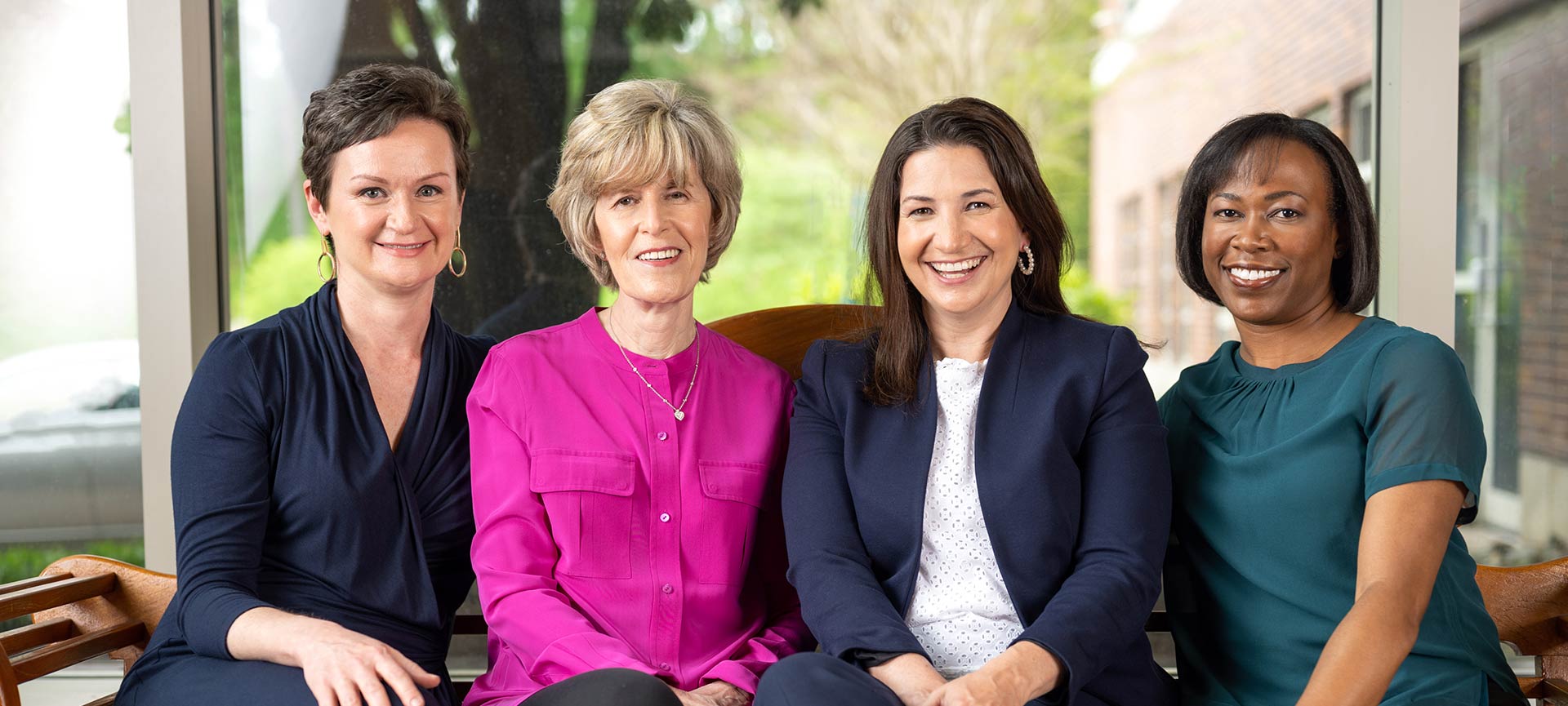Breast Cancer: A Conversation with a Physician and a Survivor
October 8, 2019October is breast cancer awareness month, but for women diagnosed with the disease and their physicians, the fight against breast cancer happens all year. Kruti Patel, MD, a radiation oncologist at GBMC, and Deirdre Gardner, a breast cancer survivor, talked with Mary Beth Marsden about their experience of breast cancer treatment.
“Radiation is an important part of breast cancer treatment for many women, especially those who undergo a lumpectomy,” Dr. Patel explained. “Breast conserving therapy and radiation is very much about ‘saving the tatas,’ as the slogan says. We’ve come a long way from the days when mastectomy was the most common form of treatment for breast cancer. We’re now even able to treat lymph nodes with radiation rather than removing them surgically, which can cause fewer side effects.”
Dr. Patel explained that radiation is used to eradicate microscopic cancer cells that the lumpectomy or other surgery may not have removed. With GBMC’s leading-edge technology, radiation oncologists are able to deliver a more controlled, targeted dose of radiation to the areas at risk and minimize the dose to the heart and lungs. In addition, for most patients, radiation lasts four weeks, compared to a few years ago when six and half weeks of radiation therapy was needed.
“While some of my patients experience fatigue after treatment, many come in on their lunch hour from work and go back to work after treatment,” said Dr. Patel. “How you feel during treatment is very patient-dependent. There’s no right way to feel.”
Deidre Gardner is very familiar with GBMC’s breast cancer team and the highs and lows of treatment. She found a lump in her breast in 2011, which was diagnosed as Stage 0 breast cancer. She chose to undergo a mastectomy and was glad she did when pathology after her surgery found cancer cells in other places in her breast.
For five years, she was cancer free, but in 2016 she discovered a lump in her other breast, which turned out to be HER-2 positive breast cancer. She underwent chemotherapy to shrink the tumor, then a mastectomy and removal of lymph nodes, followed by radiation and additional rounds of chemotherapy.
“Everyone at GBMC was compassionate and encouraging, which made a big difference,” Deirdre said. “They explained everything and kept me educated about all my options. With their support and my faith, I was able to look at treatment as a process you go through to get to the healing. I focused on staying positive, keeping people with a negative attitude or who looked at me with pity out of my circle. Treatment is a rollercoaster, but you need to allow yourself to feel sad or scared or angry, just don’t stay there. I relied heavily on my faith and scriptures on healing and believing there was more work in this life that God wanted me to do. For me, that work is being a living testimony that you can get through breast cancer.”





